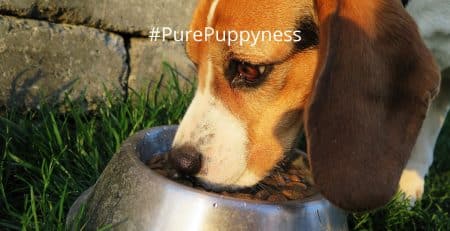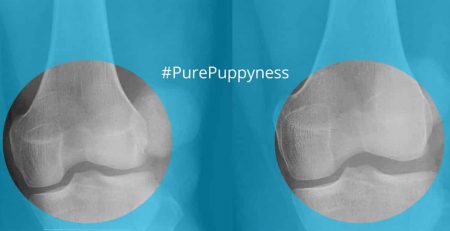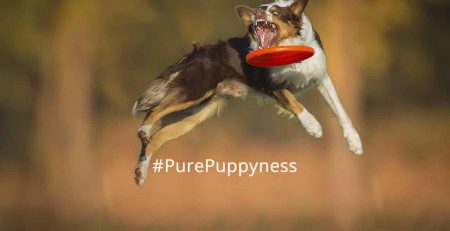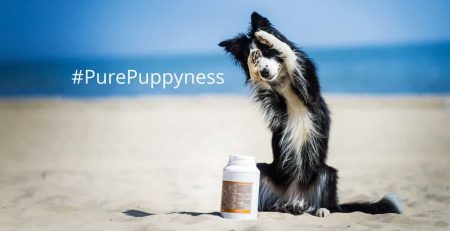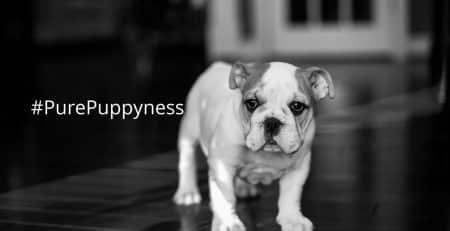Holiday Hazards for Dogs
It’s that time of year again. Whether you celebrate Christmas, Kwanza, Hanukkah, or some other feast, this is the time of year to meet family and friends, to relax by a fire or heater, wrapping presents or enjoying hot chocolate. It’s a time for appreciating those you love, and there’s no way you can leave out your dog! Your dog will probably be perplexed by all the decorations and lights, and entranced by delicious-smelling food everywhere.
Although your dog will certainly appreciate treats, presents, and attention, one of the best gifts to give your dog is making sure he or she remains safe during the holidays. There are a surprising number of holiday hazards, both in the house and outside. We’re sharing our top tips to help you and your dog have the best, safest holiday possible.
Decorations
Half the fun of the holidays is decorating the house. It’s wonderful to sit back and admire your handiwork: streamers stretched across the walls, trees festooned with ornaments, mistletoe perched above doorways, and tinsel draped across every available surface.
Unfortunately, dogs don’t understand decorations, seeing them as toys or food. Beauitful holiday plants such as poinsettias, mistletoe, Christmas roses, holly, ivy, and even Christmas trees will make your dog very sick if he/she chews on them. Paper and plastic decorations are less dangerous, though if your dog eats enough they can form a blockage in his/her gut. Glass decorations are more of a problem as they can break into sharp pieces if chewed or swallowed, injuring your dog.
Although decorations are unlikely to kill your dog, eating them will make him/her feel very poorly. You may need to take him/her to the vet, which is the last thing you want to do during the busy holiday season. You can keep your pet safe by hanging decorations out of their reach. Some people even place a barrier around their tree for protection, though most dogs can be trained to leave it alone. Be sure to hang lights where your dog cannot chew on the cables, and consider turning them off when you’re out.
Food
Holidays are a time for delicious food, and lots of it! Be careful about sharing food with your beloved dog. It’s not just worrying about your dog’s weight; many common holiday treats are actually bad for your pet.
Foods to avoid include:
- Chocolate: It contains the chemical theobromine, which is toxic to dogs.
- Grapes, Raisins, Sultanas, Currants: Even small amounts of these foods can cause liver failure. Make sure you keep your dog away from Christmas puddings and mince pies, because they contain these dried fruits.
- Onions and Garlic: Any member of the plant family Allium (including shallots and chives too) can cause vomiting and diarrhoea, and eventually leads to anaemia.
- Bones and fat: Cooked bones, especially from poultry, are brittle and splinter easily. These splinters can obstruct your dog’s digestive system or even perforate the gut. Too much fat may give your dog indigestion. Even if your dog has an iron stomach, too much fat will lead to weight gain. You can set aside pieces of meat for your dog; just remove the fat and bones first.
- Alcohol: Dogs can become drunk from alcohol. This may sound funny, but remember that dogs are smaller than humans, so alcohol consumption can lead low blood sugar, hypothermia, and even coma in the worst cases.
- Macadamia nuts: Within 12 hours of eating these, your dog may become lethargic and weak, with a raised body temperature, tremors, and vomiting.
Fireworks
Many dogs are scared of fireworks. The flashing lights, loud noises, and scent of gunpowder are confusing and scary. A panicked dog may run away or hurt themselves struggling to hide or escape. Be sure to keep you dog inside on New Year’s Eve or any other day when fireworks are expected. Most dogs will feel more secure in an enclosed space such as a bathroom or even a dog crate. Keep your dog company (read a book or watch a film; don’t fuss over your dog too much as this can make them more anxious. If they see that you are unworried, they are more likely to calm down) and provide distractions such as a toy or treats.
Weather
In the Northern hemisphere, cold weather is setting in. Dogs are at risk of hypothermia (when their body temperature is too low), chaffed paws from road salt, and accidentally ingesting antifreeze (which is toxic).
Keep your dog warm on walks with a dog coat, and only go on short walks if the weather is bad. You can warm your dog up before and after walks with a warm towel or a hot water bottle. To stop road salt from chaffing your dog’s paws, use a towel to dry his/her paws after walks. You can also purchase special dog boots to protect their paws. Dogs sometimes lick antifreeze due to its sweet taste, so them away from garages and driveways, and store your antifreeze out of harm’s way.
Hustle and bustle
Most people will have a lot of visitors during the holidays. Humans can find dealing with the influx of people stressful, and so can dogs. All the new visitors and the disruption of daily life can be very confusing for a dog. More confident, sociable dogs should quickly adapt to the change (and may even enjoy all the attention from new people), but nervous or shy dogs might not enjoy the commotion.
To help your dog to relax, provide them with a quiet room to hide in when they feel nervous. Leave toys and your dog’s bed there, along with some treats. If your dog feels overwhelmed, take them there and give them some time to calm down. Your dog will appreciate this retreat.


